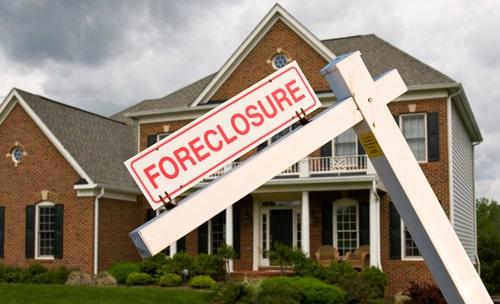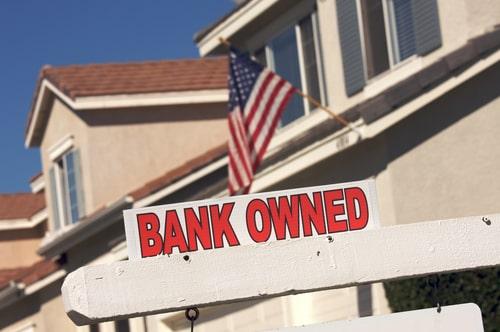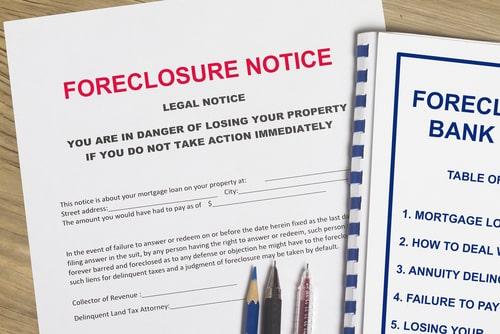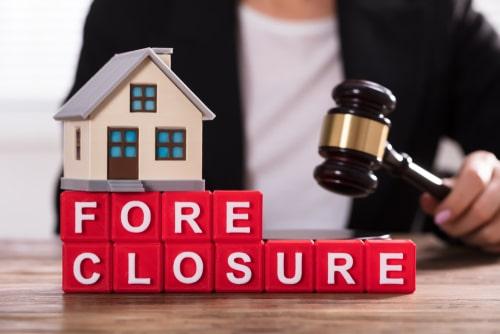1512 Artaius Parkway, Suite 300,
Libertyville, IL 60048
Call for a FREE Phone Consultation
847-549-0000
Video Consultations Also Available
 Spanish
SpanishServing Clients Across 7 Illinois Locations
Recent Blog Posts
Report Finds Illinois Foreclosure Rates on the Rise
 There are many ways to measure the overall health of the housing market in the United States. For example, you could look at trends in home sales, sale prices, and other considerations linked with individuals and families buying new homes. On the other side of the coin, however, it is also important to look at the rate of foreclosures around the country, as foreclosure rates are often indicators of people struggling to afford their homes.
There are many ways to measure the overall health of the housing market in the United States. For example, you could look at trends in home sales, sale prices, and other considerations linked with individuals and families buying new homes. On the other side of the coin, however, it is also important to look at the rate of foreclosures around the country, as foreclosure rates are often indicators of people struggling to afford their homes.
Earlier this month, ATTOM Data Solutions released a report that examined foreclosure filings across the nation in January 2020. The report looked at total foreclosure filings, which include default notices, bank repossessions, and scheduled auctions, as well as foreclosure “starts” and overall foreclosure rates. As it turns out, Illinois homeowners did not fare particularly well in January, as foreclosure continues to be an issue for many throughout the state.
Advantages and Disadvantages of Purchasing a Real Estate-Owned Home
 There are so many avenues for buying a home that deciding what route is best for you can sometimes be overwhelming. While researching your home-buying options, you may have found information about foreclosed properties. When a homeowner cannot make his or her mortgage payments, the mortgage lender may foreclose on the property and put the home up for sale. These homes are often sold at foreclosure auctions, so it is possible that you could buy a foreclosed home for price much lower than it would otherwise be.
There are so many avenues for buying a home that deciding what route is best for you can sometimes be overwhelming. While researching your home-buying options, you may have found information about foreclosed properties. When a homeowner cannot make his or her mortgage payments, the mortgage lender may foreclose on the property and put the home up for sale. These homes are often sold at foreclosure auctions, so it is possible that you could buy a foreclosed home for price much lower than it would otherwise be.
If the home does not sell during the auction, the home returns to the lender and becomes a “real estate-owned” property, also called an REO property. The institution will then look for ways to sell the home and recoup the money lost due to the foreclosure. If you are thinking about buying an REO property, make sure you fully research the potential advantages and disadvantages associated with this option and discuss your plans with a real estate attorney.
Buying a New Home? Do Not Fall Victim to These Common Financial Mistakes
 The prospect of buying the home of your dreams is an exciting idea for anyone. Thinking about the specific features you want your new home to have, fantasizing about how you will decorate your home, and considering all the ways that your new home will improve your life can understandably cause anyone to be eager. However, it is important to remember that buying a home will probably be one of the biggest financial decisions you ever make. Rushing this decision can lead to major mistakes that could cause significant financial problems for you down the road.
The prospect of buying the home of your dreams is an exciting idea for anyone. Thinking about the specific features you want your new home to have, fantasizing about how you will decorate your home, and considering all the ways that your new home will improve your life can understandably cause anyone to be eager. However, it is important to remember that buying a home will probably be one of the biggest financial decisions you ever make. Rushing this decision can lead to major mistakes that could cause significant financial problems for you down the road.
Purchasing a Home That You Cannot Realistically Afford
Your budget for your new home will largely be determined by your mortgage lender. The lender will determine the mortgage loan based on your credit score, tax documents, and other information. However, lenders sometimes approve homebuyers for larger loans than they can actually afford. Such approvals, in fact, were among the main causes of the housing market crash of 2008 and 2009. If you end up being approved for a mortgage loan that is larger than you anticipated, it may be best not to accept this larger amount. Financially overcommitting yourself in order to buy a more expensive home may lead to years of financial struggle and even foreclosure.
How Can a Real Estate Lawyer Help Me If I Am Buying a Home?
 If you are ready to buy your first home, congratulations! Being a homeowner comes with numerous benefits, but also many serious responsibilities. Your home will probably be the biggest financial investment you ever make, so it is essential to be aware of the obstacles you may experience in the home-buying process. Whether you are a first-time homebuyer or you are currently a homeowner interested in buying a new home, there are a variety of ways that a real estate lawyer can help you.
If you are ready to buy your first home, congratulations! Being a homeowner comes with numerous benefits, but also many serious responsibilities. Your home will probably be the biggest financial investment you ever make, so it is essential to be aware of the obstacles you may experience in the home-buying process. Whether you are a first-time homebuyer or you are currently a homeowner interested in buying a new home, there are a variety of ways that a real estate lawyer can help you.
Limitations of Real Estate Agents
When someone prepares to buy a home, they may assume that the only professional they will need to consult with is a real estate agent or broker. A real estate agent can offer helpful support and advice on a variety of issues, however, his or her guidance alone is not enough to ensure the home-buying process goes as smoothly as it should.
What Are the Benefits of Short Selling My Home?
 If you are behind on your mortgage payments and you owe more than your home is worth, you may be wondering what will happen next. One option which may be advantageous to you and your family is a “short sale.” A short sale occurs when a home is sold for an amount of money that is less than what the owner still owes on the mortgage. Short sales are often used to avoid foreclosure. Having your home foreclosed on is not only extremely stressful but can also result in significant damage to your credit score. Some people who experience foreclosure are even forced to file for bankruptcy. A short sale is not right in every situation, but there are several advantages to short selling of which you should be aware.
If you are behind on your mortgage payments and you owe more than your home is worth, you may be wondering what will happen next. One option which may be advantageous to you and your family is a “short sale.” A short sale occurs when a home is sold for an amount of money that is less than what the owner still owes on the mortgage. Short sales are often used to avoid foreclosure. Having your home foreclosed on is not only extremely stressful but can also result in significant damage to your credit score. Some people who experience foreclosure are even forced to file for bankruptcy. A short sale is not right in every situation, but there are several advantages to short selling of which you should be aware.
Avoiding the Stigma of Foreclosure and Remain in Control of Who Gets Your Home
Life does not always go according to plan and foreclosure can happen to anyone. One out of every 2541 residences in the United States is in some stage of the foreclosure process. In Illinois, that number is one out of every 1381 residences, nearly double the national average. Dealing with foreclosure on is not necessarily something to be ashamed of, however many people who experience foreclosure do feel embarrassed when friends and neighbors find out about it.
Red Flags to Be Wary of When Purchasing a Home
 There is no question that buying a home can be an exhilarating venture. However, it is also a process you should not take lightly. It is important that you do not rush the selection process and that you ensure you are making an informed decision. For help with home purchase contracts and trustworthy legal guidance throughout the home-buying process, contact an experienced real estate attorney. While you are house-hunting, make sure to consider all of the relevant factors. Keep a watchful eye out for the following red flags that could signal that the home you are considering is not the right option for you.
There is no question that buying a home can be an exhilarating venture. However, it is also a process you should not take lightly. It is important that you do not rush the selection process and that you ensure you are making an informed decision. For help with home purchase contracts and trustworthy legal guidance throughout the home-buying process, contact an experienced real estate attorney. While you are house-hunting, make sure to consider all of the relevant factors. Keep a watchful eye out for the following red flags that could signal that the home you are considering is not the right option for you.
The Owner Will Not Cooperate with the Inspection Process
Getting a home inspection when you are considering buying a new home is essential. There may be major issues with the roof, water damage that is concealed by wallpaper or paint, faulty wiring, plumbing issues, and other problems which are not noticeable without a proper inspection. If the homeowner seems hesitant to allow an inspection or does not want you to use your own inspector, this could be a sign that he or she is trying to hide something.
Report Suggests Illinois Foreclosure Laws May Be Slowing Housing Market Growth
 It has been almost a full decade since the housing market crisis was at its lowest point. In late 2009, nearly 25 percent of homes with a mortgage were underwater—meaning that the value of the home was less than the amount remaining on the mortgage. Millions of homeowners across the country were forced to deal with the reality of foreclosure.
It has been almost a full decade since the housing market crisis was at its lowest point. In late 2009, nearly 25 percent of homes with a mortgage were underwater—meaning that the value of the home was less than the amount remaining on the mortgage. Millions of homeowners across the country were forced to deal with the reality of foreclosure.
Now, it is 10 years later, and across the country, the situation has largely improved. Today, less than 4 percent of the nation’s mortgaged homes have negative equity. In Illinois, however, things have been much slower to recover, and about 8 percent of the mortgaged homes in the state are still underwater—approximately twice the national average. At least one expert believes that the state’s foreclosure laws have contributed to the slower recovery.
High Property Taxes, Slow Foreclosures, and Oppressive Red Tape
Frequently Asked Questions About Illinois Consent Foreclosures
 Life can sometimes throw unexpected curve balls our way that prevent us from staying current on mortgage payments. Perhaps you or someone in your family has experienced a job loss, substantial increase in expenses, major health issue, or another surprising life event. Whatever the reason, being behind on mortgage payments can put an individual at risk of foreclosure. If you are facing a possible foreclosure, one option that may be right for you is a consent foreclosure.
Life can sometimes throw unexpected curve balls our way that prevent us from staying current on mortgage payments. Perhaps you or someone in your family has experienced a job loss, substantial increase in expenses, major health issue, or another surprising life event. Whatever the reason, being behind on mortgage payments can put an individual at risk of foreclosure. If you are facing a possible foreclosure, one option that may be right for you is a consent foreclosure.
What is a Deficiency Judgement?
Illinois law mandates that all foreclosures must go through the court system. The mortgage servicer may begin the foreclosure process when the borrower is four months or more behind on payments. If the homeowner cannot cure the default, the servicer will file a foreclosure lawsuit. If the lender wins the lawsuit, it has the authority to seize and sell your home. The difference between the amount you owe on your home and the home’s sale price is called a deficiency. Deficiencies can often be tens or even hundreds of thousands of dollars. The legal order requiring you to pay this difference is called a deficiency judgment.
If My Home Is Being Foreclosed on, When Do I Have to Leave the Property?
 Facing a possible foreclosure can be a terrifying ordeal. You may worry that you will have to immediately leave your home or even become homeless. The good news is that the foreclosure process takes several months. Although even one missed mortgage payment could technically be enough to violate a mortgage contract, missing one or two mortgage payments will generally not initiate foreclosure proceedings. The majority of lenders will not start taking actions to foreclose on a home until the borrower is three or more payments behind.
Facing a possible foreclosure can be a terrifying ordeal. You may worry that you will have to immediately leave your home or even become homeless. The good news is that the foreclosure process takes several months. Although even one missed mortgage payment could technically be enough to violate a mortgage contract, missing one or two mortgage payments will generally not initiate foreclosure proceedings. The majority of lenders will not start taking actions to foreclose on a home until the borrower is three or more payments behind.
Furthermore, just because foreclosure proceedings have begun does not mean you must immediately vacate your home. Illinois law considers the borrower to be the lawful occupant of the home until a judgement of possession is entered. The process of gaining a judgement of possession in Illinois usually takes nine months or more.
Possible Defenses Against Home Foreclosure in Illinois
 Data shows that approximately one in every 2,453 homes in the United States will be foreclosed on at some point. The problem is even more serious in Illinois, where one in every 1,336 homes will be foreclosed on according to the current foreclosure rate. Having your home foreclosed on can be an absolutely devastating ordeal to endure. Unfortunately, many homeowners do not understand what their rights are when it comes to home foreclosure. They may assume that they “deserve” to lose their home because they have missed mortgage payments. However, mistakes are prevalent in the mortgage servicing industry, and some individuals facing a foreclosure may be the victim of such an error. If you have been threatened with foreclosure, you should know that there are several foreclosure defenses that could help you keep your home.
Data shows that approximately one in every 2,453 homes in the United States will be foreclosed on at some point. The problem is even more serious in Illinois, where one in every 1,336 homes will be foreclosed on according to the current foreclosure rate. Having your home foreclosed on can be an absolutely devastating ordeal to endure. Unfortunately, many homeowners do not understand what their rights are when it comes to home foreclosure. They may assume that they “deserve” to lose their home because they have missed mortgage payments. However, mistakes are prevalent in the mortgage servicing industry, and some individuals facing a foreclosure may be the victim of such an error. If you have been threatened with foreclosure, you should know that there are several foreclosure defenses that could help you keep your home.
 Stop Foreclosure
Stop Foreclosure
















